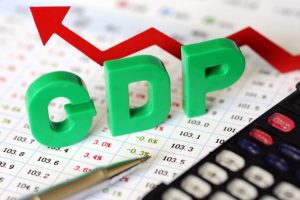The World Bank (WB) has upgraded its forecast of Croatia’s growth for 2019 mainly thanks to solid domestic demand while the growth rate is expected to slow down over the next two years due to a slower increase in household consumption and investment as well as due to weaker foreign demand.

Croatia’s growth is expected to pick up slightly in 2019 to 2.9%, the World Bank forecast in its Economic Update (ECA) Fall 2019 released on Wednesday, upgrading it from its June outlook by 0.4 percentage points.
In 2018, Croatia’s GDP increased by 2.6%.
The WB slightly increased its outlook for Croatia’s growth in 2020, by 0.1 pp to 2.7 percent, while in 2021 it foresees a slower growth of 2.4% which is equivalent to its June outlook.
Household consumption will make the largest contribution to overall GDP growth, which WB foresees will increase by 3.7%, reflecting further growth in employment and wages but also rising household borrowing.
A significant contribution could also come from investment activity both in the public and private sectors, partly reflecting greater EU funds absorption.
The WB foresees gross fixed capital to increase by 8.3% in 2019, double that of 2018. Government consumption is expected to increase by 3.5% after increasing by 2.9 pp in 2018.
The trade balance will continue to deteriorate and is expected to be higher than in 2018 considering that imports are expected to grow driven by strong domestic demand while exports are set to moderate and remain at last year’s level.
The WB projects that Croatia’s exports could increase by 2.8% while imports would grow by 6.3%. In 2018, exports increased by 2.8% and imports by 5.5%.
In 2020 and and 2021 that rate would remain stable at this year’s level while the increase in imports should slow down to 5.3% in 2020 and 5.1% in 2021.
Inflation this year should slow down to 0.9%, down from last year’s 1.5%. Next year inflation could step up to 1.0% and then to 1.4% in 2021.
In the next two years economic growth is expected to slow down due to expected slowing of household consumption as employment and wage growth gradually decelerate.
Investment growth too is set to moderate with an estimated growth of 6.4% of gross fixed capital investments in 2020 and 6.3% in 2021.
Exports might also edge down on the back of weak external outlook.
“Risks are skewed to the downside. Exports of goods are exposed to the risk of faster slowdown in external demand of Croatia’s main trading partners,” the WB underscored.
“Tackling the weak potential of the Croatian economy would require a broad structural reform agenda with the aim to increase low productivity by raising the quality and mobility of both human and physical capital,” the WB said.
The general government budget is expected to remain close to balance over the next two years, as revenues are expected to remain buoyant, while interest expenses could further diminish, the WB estimates.
A budget surplus of 0.2% is expected for 2019 while in 2020 a budget deficit is estimated at 0.2% and a balanced budget in 2021.
The public debt to GDP ratio could decline further to 70.4%, down from 74.5% in 2018. In 2020 it is expected to fall to 67.5% and in 2021 to 64.6%.
The WB warns that the decline in public debt could be negatively influenced by “strong pressures for wage increases in the public sector and a possible increase in spending before the general elections scheduled for Autumn 2020.”
The report adds that “moderate economic growth should lead to steady income growth for the poor.”
“Assuming that growth from 2019 onwards is equally distributed across all individuals, poverty would decrease from 4.2 percent in 2018 to 3.9 in 2019 and further to 3.3 percent by 2021,” the WB says in its autumn outlook of Croatia’s growth.
Source: HINA